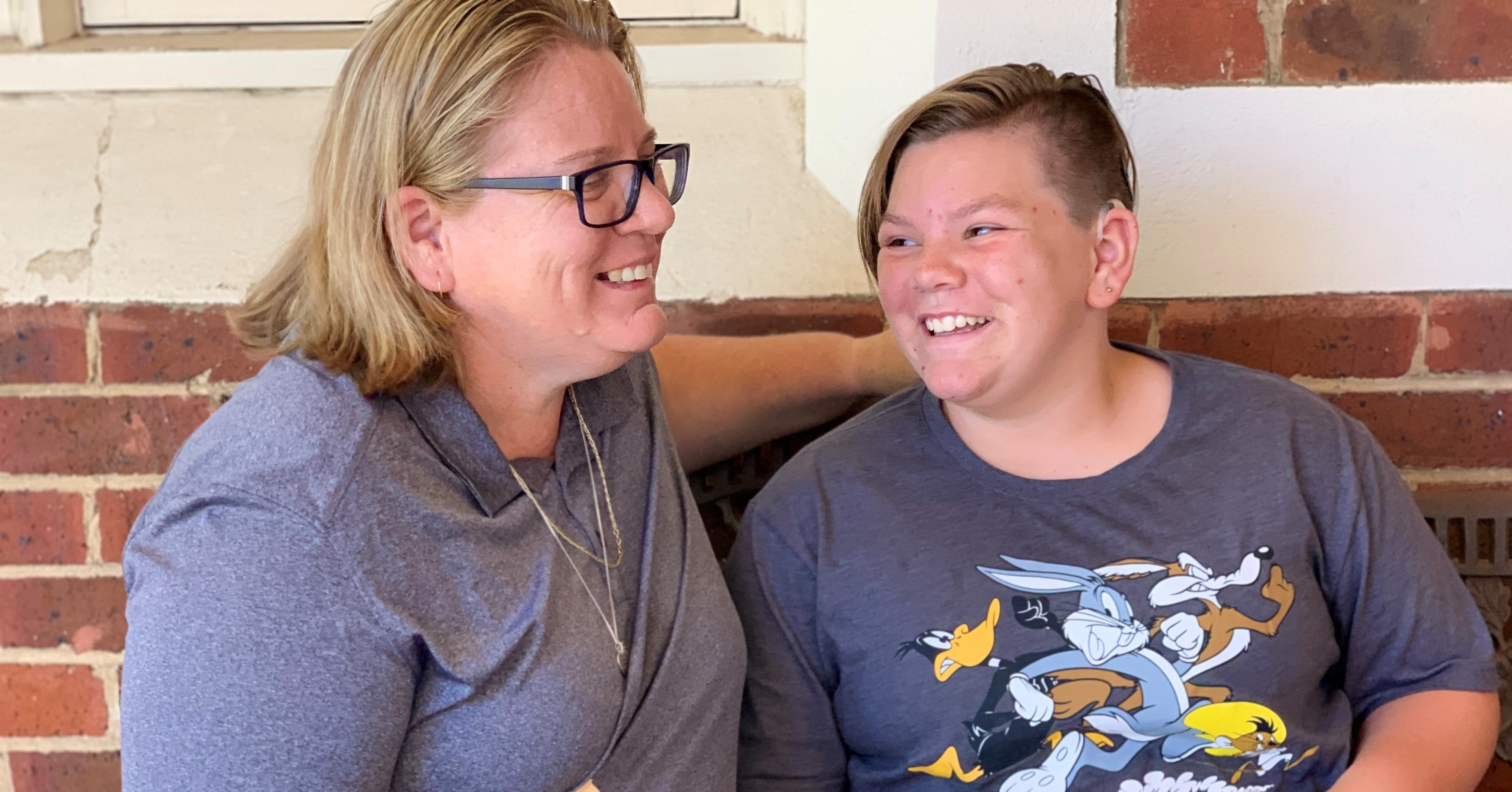
Adolescence can be challenging for all kids, but especially for those who are Deaf or hard-of-hearing. New resources developed by The Kids Research Institute Australia aim to make life a little easier.
Like all adolescents making the leap from primary school to high school this year, Lucy Macri was nervous about making new friends. Witty and whip-smart, there’s nothing to give away that she is hard-of-hearing except for a cochlear implant hidden under her hair.
But mum Jenelle, who is also hard-of-hearing, understood the unique difficulties her daughter would face both as an adolescent navigating a whole new world, and as a young person facing the additional social challenges that come with being Deaf or hard-of-hearing.
“Lucy has never seen herself as someone who struggles,” Jenelle said. “But as her mum, I have struggled with the social impact on her. It’s been tough watching her go through the same social and emotional challenges I did at school, like not being invited to parties or sleepovers, or barely having any playdates.
“At primary school, she was always alone at recess and lunch time and the last picked for a dorm when they went to school camp. She’s never had that group of mates saying, ‘You’re with us, Lucy!’ I’m an adult and I know how to choose my friends wisely. But at that age, it’s hard to feel different.”
Beyond the schoolyard, Lucy said teachers were also often unaware of the little things they could do to make life easier in the classroom.
“Things like turning your back when talking – they do it a lot!” she said. “Teachers need to speak loud and clearly and keep things in mind like setting up charging stations and making sure there are always spare batteries.”
It’s experiences like Lucy’s that inspired the BELONG project, a research project conducted by The Kids Research Institute Australia with the support of Telethon Speech and Hearing and the School of Special Educational Needs: Sensory. A study of the school-based experiences of children who are Deaf or hard-of-hearing, the four-year project was funded by Healthway and aimed to help these young people fit in even better than they currently do.
“We know that children and young people who experience chronic disease face even greater challenges in their social and emotional development,” said The Kids Professor Donna Cross, who led the project. “One of the groups that suffers quite significantly is children who are Deaf or hard-of-hearing.
“Sometimes they can’t interact at the same pace as their peers. They’re in this slightly awkward position because they may miss a key line of conversation or process things a little slower– not because they are neurologically deficient, but because of their hearing aid.”
The BELONG project kicked off with a youth voice forum of 10 students who were Deaf or hard-of-hearing, who identified some of the key issues they faced and came up with a game plan for a technology-based intervention. Professor Cross said it was critical to hear directly from those impacted and involve them in the development of these resources.
“We want young people to be confident and self-directed in the actions they can take to help themselves,” she said. “They told us what they needed at school, home and amongst their peers.”
The end result was a comprehensive website, launched this year, which provides resources to parents, teachers and children who are Deaf or hard-of-hearing. The platform has three portals, the first of which is accessible to schools and advises teachers how to support students who are Deaf or hard-of-hearing and their social and emotional learning. It was informed by specialist Teachers of the Deaf, as well as regular classroom teachers and school principals.
The second part of the website is for parents, with the project seeking out consumer groups to describe what information needed to be included.
“The parents were keen for a digital summary of what they wanted every teacher to know about their child and tips like what to do when a child feels lonely, or how to help a child build more friends,” Professor Cross said.
The final portal was created by and for young people, who offered strong suggestions about what they needed.

For Jenelle and Lucy, the more people who learn about what life is like for the Deaf and hard-of-hearing, the better.
“There’s still that throwback to the 1900s, where ‘Deaf and dumb’ was used as a collective, which is why Deaf awareness training and resources that challenge these misconceptions are so important,” Jenelle said.
“I’m sure a lot of parents may have been more comfortable inviting Lucy over to play if they knew that it wasn’t going to be an issue, or that she wouldn’t require more resources than any other child.”
Lucy agreed: “Some people seem to think if you’re Deaf or hard-of-hearing you can’t do anything or that we’re not the same. But it’s not true. We can do everything.”
